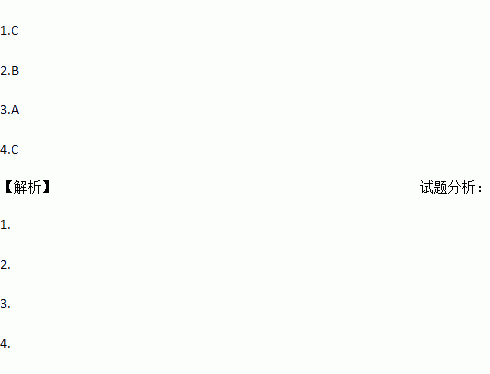题目内容
It is 7 am and the alarm is going off. You know you have to be out of bed to catch the bus. But the urge to bury yourself in the bed is ever so strong. Sounds familiar? Why is it that teens find it difficult to get themselves out of bed in time every morning or stay sharp and focused during the first couple of hours of school?
During adolescence, the body goes through many changes and these include a shift in sleep patterns. Researchers from MIT have been tracking the body’s need for sleep in teenagers. They found that though adolescents need as much as 9.5 hours of sleep a day, they get to bed later and later with each passing year. In fact, the sleep cycle shifts later by as much as 12 to 18 minutes each year between the ages of 10 and 20! So by the time a 10?year?old who sleeps at 8 pm grows to be 17 or 18, his body naturally wants to stay up till 10:30 pm or 11 pm.
According to researchers, this is because of a hormone called melatonin (褪黑激素) that is secreted (分泌) by the pineal gland — a tiny structure deep inside the brain. Melatonin regulates the body’s natural day?night rhythms. It causes a person to become sleepy by lowering his body’s core temperature. In teens, melatonin is secreted much later in the evening and continues to increase throughout the night. This makes it difficult for teens to fall asleep earlier as they did in their younger years. Likewise, the effect of melatonin continues until much later in the morning, making it hard for them to wake up early.
A study found that at least one in four teens is tired and falls asleep in school at least once a week. During sleep, important body functions and brain activities happen. So how can teenagers get their sleep enough? The American Academy of Pediatrics (AAP) recommends that middle and high schools should start later — not before 8:30 am. This should give teens some more time to sleep at night.
1.From Paragraph 2, we can learn that if you sleep late, the next day you should ________.
A. stay sharp B. skip breakfast
C. get up late D. stay up late
2.What does the underlined word “this” in Paragraph 3 refer to?
A. The students want to stay up.
B. The shifts of the sleep cycle.
C. The pineal gland secretes melatonin.
D. The adolescents sleep late.
3.The teens go to sleep later than before because ________.
A. melatonin is secreted much later
B. melatonin regulates the sleep time
C. they sleep a lot in the daytime
D. they need to finish their homework
4.According to AAP’s recommendation, middle and high schools should ________.
A. let teens sleep in the day B. let the students be active
C. delay the start time D. start later at 8 am


 scolded B. persuaded C. reported D. ordered
scolded B. persuaded C. reported D. ordered ) 并在其下面写出该加的词。
) 并在其下面写出该加的词。